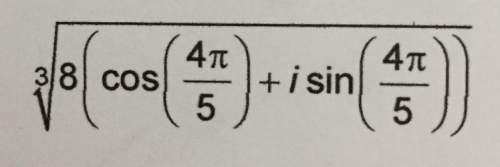
Mathematics, 19.12.2019 20:31 joe7977
In a study 1 examining gender bias, a nationwide sample of 127 science professors evaluated the application materials of an undergraduate student who had ostensibly applied for a laboratory manager position. all the faculty members received the same application, with half randomly given a male name and half randomly given a female name. we see that the applications with female names received a significantly lower recommended salary. does gender of the evaluator make a difference? in particular, considering only the 64 applications with female names, is the mean recommended salary different depending on the gender of the evaluating faculty member? the 32 male faculty gave a mean starting salary of $27,111 with a standard deviation of $6,948 while the 32 female faculty gave a mean starting salary of $25,000 with a standard deviation of $7,966. the standard error of the difference is $1,868.14.

Answers: 3


Another question on Mathematics

Mathematics, 21.06.2019 14:00
Question 3 of 30 paul buys fruit to make smoothies. he buys 3.78 pounds of apples, 2.12 pounds of peaches, and 4.45 pounds of oranges. paul rounds each weight to the nearest tenth of a pound. about how many pounds of fruit did paul buy? (a) 10.5 pounds (b) 10.2 pounds (c) 10.4 pounds (d) 10.0 pounds 30 points
Answers: 2

Mathematics, 21.06.2019 16:00
When turned about its axis of rotation, which shape could have created this three-dimensional object?
Answers: 3

Mathematics, 21.06.2019 19:20
Which letters from the table represent like terms? a and b b and c a and d b and d
Answers: 3

Mathematics, 21.06.2019 22:30
Amachine that produces a special type of transistor (a component of computers) has a 2% defective rate. the production is considered a random process where each transistor is independent of the others. (a) what is the probability that the 10th transistor produced is the first with a defect? (b) what is the probability that the machine produces no defective transistors in a batch of 100? (c) on average, how many transistors would you expect to be produced before the first with a defect? what is the standard deviation? (d) another machine that also produces transistors has a 5% defective rate where each transistor is produced independent of the others. on average how many transistors would you expect to be produced with this machine before the first with a defect? what is the standard deviation? (e) based on your answers to parts (c) and (d), how does increasing the probability of an event a↵ect the mean and standard deviation of the wait time until success?
Answers: 3
You know the right answer?
In a study 1 examining gender bias, a nationwide sample of 127 science professors evaluated the appl...
Questions

Social Studies, 26.03.2020 02:02



Mathematics, 26.03.2020 02:02

Mathematics, 26.03.2020 02:02


Mathematics, 26.03.2020 02:02









Mathematics, 26.03.2020 02:02

Biology, 26.03.2020 02:02







